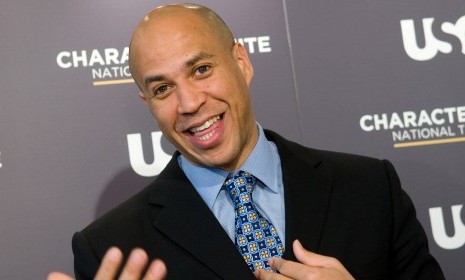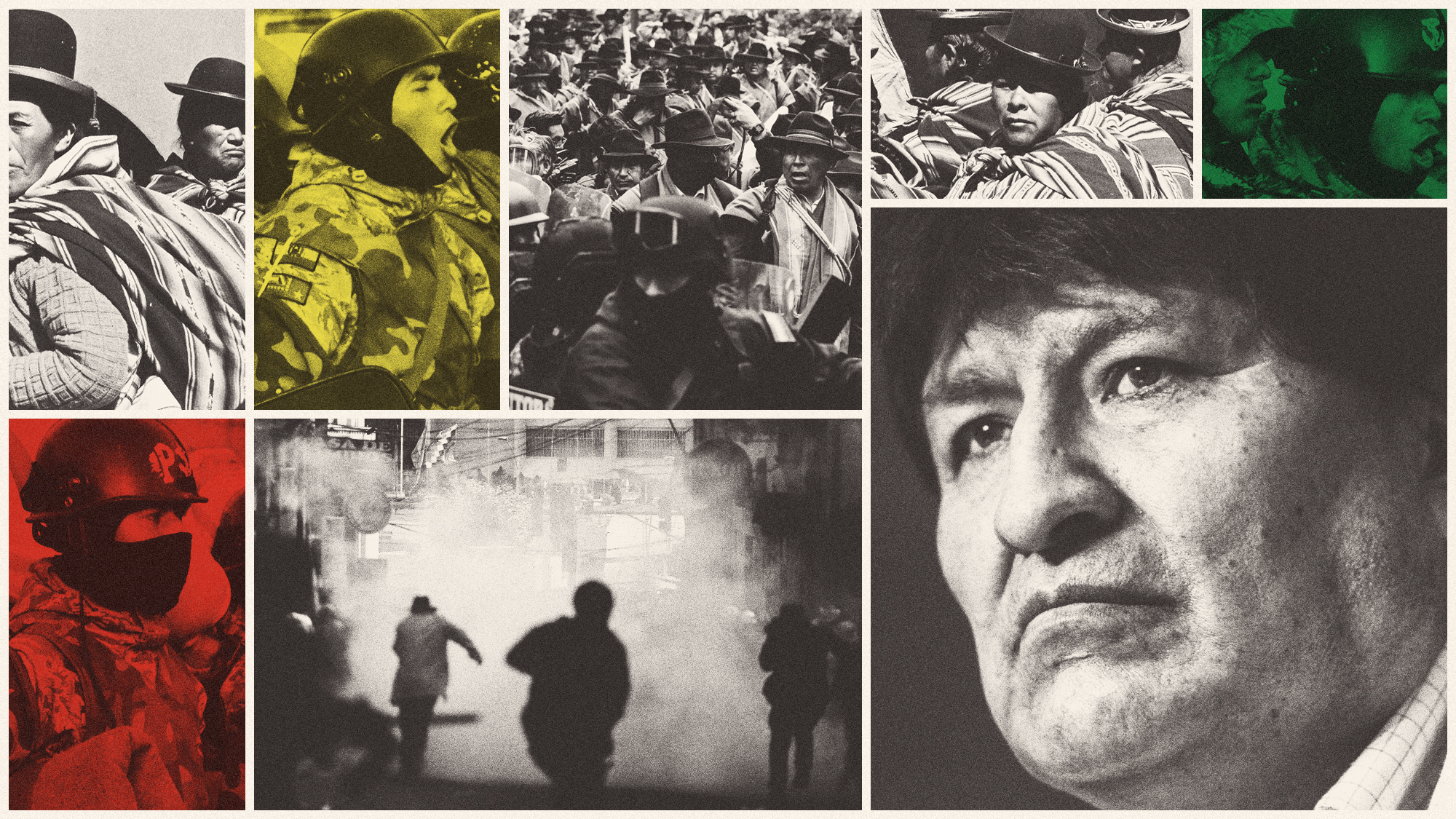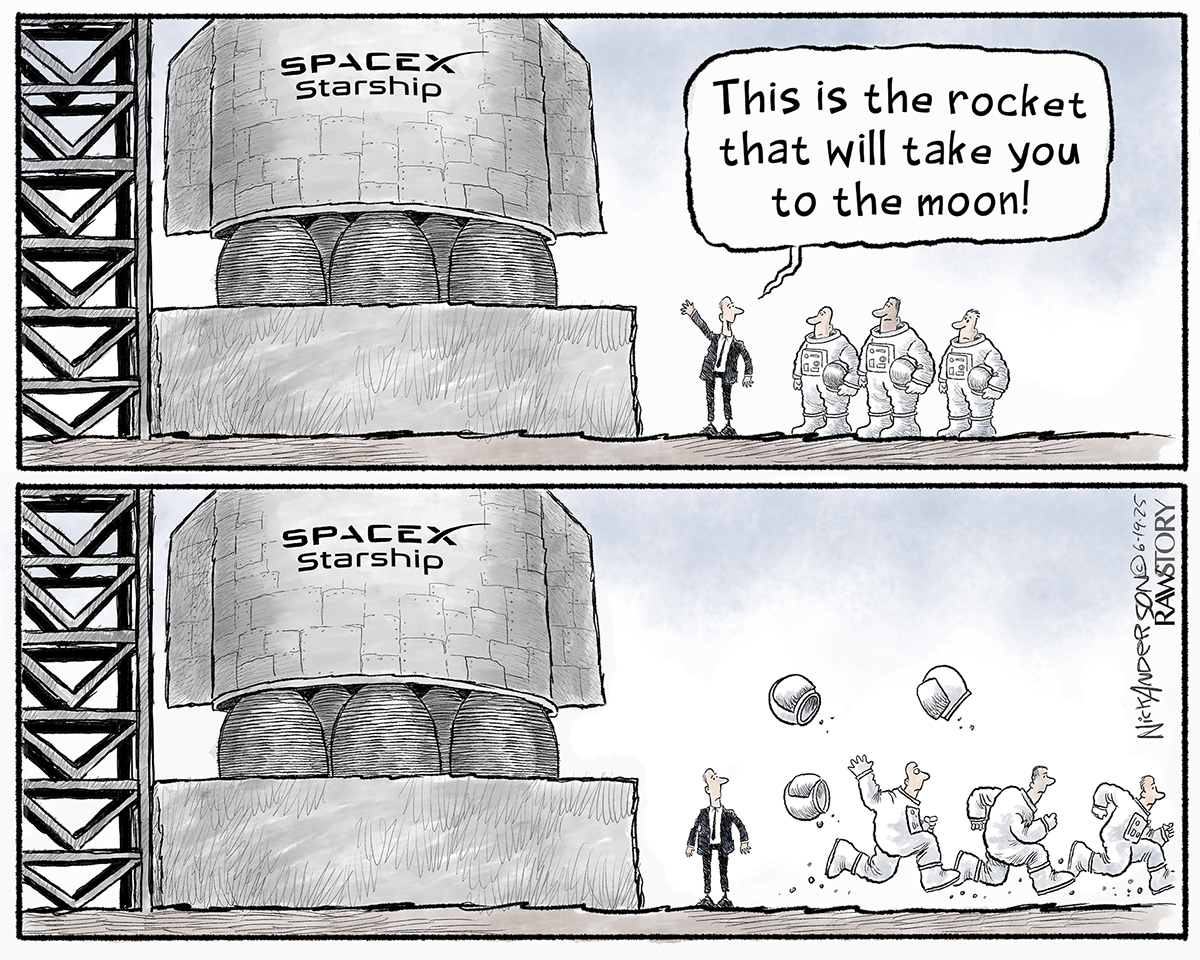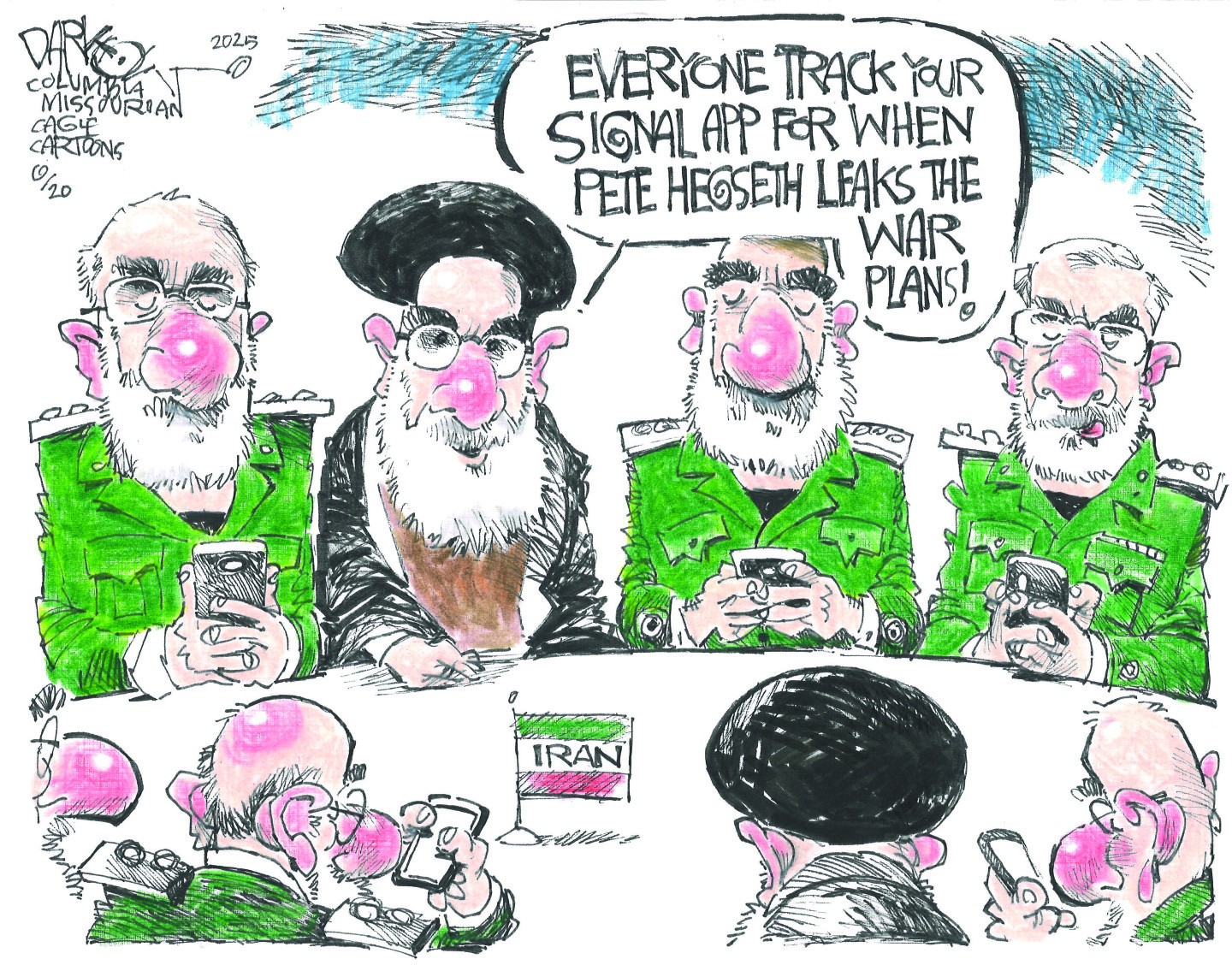Saving America's 'worst city'
Can Cory Booker — Newark's charismatic, vegetarian mayor — lead the troubled New Jersey metropolis to a renaissance?

How badly off is Newark?
It rivals Detroit as the country’s most troubled city. Newark, N.J., lost most of its employers decades ago, and after decades of political and social dysfunction, more than a quarter of its population lives below the poverty line. Located just 10 miles from New York City, Newark used to be a thriving manufacturing center for leather and other industries, and attracted waves of Italian, Jewish, and other immigrants going back to the 19th century. At its peak, around World War II, the city had a population of 450,000. In the 1960s, whites began to flee the city as blacks from the South and Puerto Ricans moved in, and the federal government constructed giant housing projects there. The 1967 riots, which resulted in 26 deaths, hundreds of torched businesses, and 1,600 arrests, seemed a death knell. Eight years later, a Harper’s magazine survey concluded that Newark was America’s “worst city.” By the time the city’s newest mayor took charge, in 2007, Newark had been reduced to 280,000 people, one supermarket, and a single movie theater.
So why the optimism?
Subscribe to The Week
Escape your echo chamber. Get the facts behind the news, plus analysis from multiple perspectives.

Sign up for The Week's Free Newsletters
From our morning news briefing to a weekly Good News Newsletter, get the best of The Week delivered directly to your inbox.
From our morning news briefing to a weekly Good News Newsletter, get the best of The Week delivered directly to your inbox.
Two words: Cory Booker. Newark’s tireless mayor has become the city’s greatest champion, preaching a gospel of rebirth to everyone from down-and-out residents to corporate CEOs. Nearly everything about Booker is incongruous. Unlike previous mayors, he is not only a product of the suburbs but of Stanford, Yale Law School, and Oxford, which he attended as a Rhodes scholar. A 6-foot-3, 250-pound vegetarian, Booker spurned a gilded career path, opting instead to live for eight years in one of Newark’s most crime-ridden public-housing projects, from which he won a seat on the city council. By 2006, he had amassed enough popularity and power to drive Newark’s longtime mayor, Sharpe James, from politics. (James was later convicted of corruption and sent to jail.) “As immodest as it sounds,” Booker said, “I’m the right guy at the right time for this city.”
What has Booker achieved?
Booker’s hardly the first mayor to promise renewal, but he’s the first to convince other movers and shakers that it’s feasible. He’s attracted more than $100 million in private philanthropy, including city programs funded by the likes of Oprah Winfrey, Jon Bon Jovi, and Brad Pitt. Booker tapped the Gates Foundation and others to fund charter schools, and raised millions to renovate and expand 20 city parks. He’s struck deals with employers in the region, such as Continental Airlines, to hire more Newark residents. And he has begun to remove the stench of corruption that enveloped Newark for decades. Upon taking office, he fired dozens of city workers in patronage jobs and brought in top talent from New York to run the city’s key departments. And while using his star power to attract support, he has maintained a relentless focus on his top priority: fighting crime.
Has crime been reduced?
A free daily email with the biggest news stories of the day – and the best features from TheWeek.com
Dramatically. During Booker’s term, homicides have declined 28 percent, shootings are down 46 percent, and crime overall is down 21 percent. March was Newark’s first month without a murder since 1966. Booker has emulated the approach pioneered by New York City in the 1990s, bringing over a New York City police veteran, Garry McCarthy, to run the police department, and instituting New York’s CompStat computer system for tracking crime and holding precinct commanders accountable. In addition, Newark has installed 100 wireless video surveillance cameras, a sonic gunshot detection system, and a rewards program for anonymous tips about guns and crime. Booker has personalized the fight against crime to a startling degree—traveling the city late into the night, challenging drug dealers to get off the street and complacent cops to get out of their squad cars. “He is fearless,” said a member of Booker’s security detail.
So can Newark come back?
The obstacles remain formidable, but there are signs of hope. Some hipsters have taken up homesteading in Newark, as have a small number of New York professionals attracted by dramatically lower rents and a short commute. A new high-rise is Newark’s first luxury residential building in nearly half a century. In addition, Marriott is planning the first new hotel in Newark in 38 years. Businesses remain wary, but the city does have valuable attributes—beginning with its proximity to Manhattan, the East Coast’s busiest shipping port, and the nation’s 13th-largest airport. “It’s got all the parts,” said architect Gordon Griffin, whose firm has designed several projects in Newark. But even Booker says Newark won’t thrive without “an end to behavior that perpetuates poverty and economic isolation,” such as a robust drug trade and high rates of school dropouts and out-of-wedlock births. Still, he insists, Newark will soon escape the list of the nation’s worst cities. “I don’t say this in an exaggerated way,” Booker said in typically exaggerated fashion, “but in five years we’re going to shock the nation.”
Arena dreams
Like many cities, Newark has banked on a new sports and entertainment arena to lead the way back to prosperity. The $375 million Prudential Center opened in 2007 amid triumphant chords from New Jersey native Jon Bon Jovi’s band. But so far the 18,000-seat arena has been only a modest success. Home to the New Jersey Devils hockey team and Seton Hall University’s basketball team, it lost the New Jersey Nets franchise to Brooklyn (though the team will play in Newark for two years while its new arena is constructed) and has yet to spark large-scale economic development. A few restaurants and bars have sprouted near the arena, but many fans drive in from the suburbs to see events, and then drive right out. “People do come for concerts and hockey games, but the big issue is whether they will stay,” said Dr. D.T. Ogilvie, a member of the Brick City Development Corporation, the city’s economic development engine. “Do we have things in place to make them want to stay?” The answer appears to be: Not yet.
-
 Morales seeks re-election defying constitution and criminal charges
Morales seeks re-election defying constitution and criminal chargesUnder the Radar Supporters of former president Evo Morales clash with authorities as political and economic turmoil deepens
-
 June 22 editorial cartoons
June 22 editorial cartoonsCartoons Sunday’s political cartoons include a SpaceX flight, Bibi pulling Donald Trump toward war, and an ICE agent looking like a bank robber
-
 5 bunker-busting cartoons about the Israel-Iran war
5 bunker-busting cartoons about the Israel-Iran warCartoons Political cartoonists take on Iran waiting for Pete Hegseth to leak war plans and Donald Trump's wish for a Nobel prize
-
 The JFK files: the truth at last?
The JFK files: the truth at last?In The Spotlight More than 64,000 previously classified documents relating the 1963 assassination of John F. Kennedy have been released by the Trump administration
-
 'Seriously, not literally': how should the world take Donald Trump?
'Seriously, not literally': how should the world take Donald Trump?Today's big question White House rhetoric and reality look likely to become increasingly blurred
-
 Will Trump's 'madman' strategy pay off?
Will Trump's 'madman' strategy pay off?Today's Big Question Incoming US president likes to seem unpredictable but, this time round, world leaders could be wise to his playbook
-
 Democrats vs. Republicans: who are the billionaires backing?
Democrats vs. Republicans: who are the billionaires backing?The Explainer Younger tech titans join 'boys' club throwing money and support' behind President Trump, while older plutocrats quietly rebuke new administration
-
 US election: where things stand with one week to go
US election: where things stand with one week to goThe Explainer Harris' lead in the polls has been narrowing in Trump's favour, but her campaign remains 'cautiously optimistic'
-
 Is Trump okay?
Is Trump okay?Today's Big Question Former president's mental fitness and alleged cognitive decline firmly back in the spotlight after 'bizarre' town hall event
-
 The life and times of Kamala Harris
The life and times of Kamala HarrisThe Explainer The vice-president is narrowly leading the race to become the next US president. How did she get to where she is now?
-
 Will 'weirdly civil' VP debate move dial in US election?
Will 'weirdly civil' VP debate move dial in US election?Today's Big Question 'Diametrically opposed' candidates showed 'a lot of commonality' on some issues, but offered competing visions for America's future and democracy